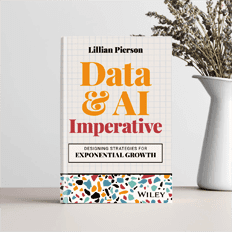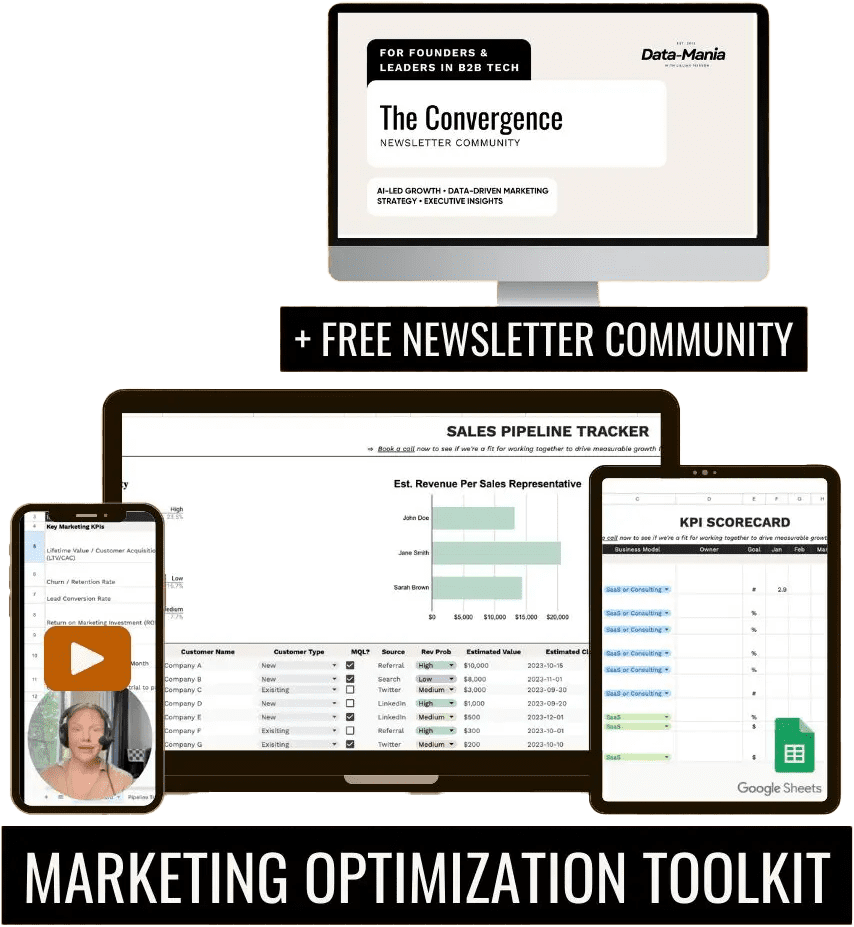Like any other industry, innovation has been a consistent driving force in the realm of digital marketing. With the fast-paced and highly competitive nature of today’s business landscape, knowing how to stand out from the crowd is vital for the success of digital marketing campaigns. It enables organizations to connect with their audience and engage them in a way that caters to their unique needs, motivations, and beliefs. That’s why, today, we want to talk to you about the impact and role of AI in digital marketing.
This process is usually tedious and labor intensive, involving in-depth research and analysis to develop an effective strategy. However, Artificial Intelligence (AI) is an innovation that has completely transformed the digital marketing sector. The rapid advancements in Artificial Intelligence have helped revolutionize their approach to digital marketing, enabling a vast range of applications with near-infinite scope and scalability.

Getting Up to Speed with AI in Digital Marketing
Artificial Intelligence or “AI” refers to one of the most recent branches of computer science, which helps create intelligent machines and algorithms that can function autonomously, almost mimicking humans. AI-generated content is already taking the world by storm today, generating precise, targeted, and well-articulated copies for advertising and marketing purposes, among others. But, AI technology is not restricted to only content generation. It plays a critical role in optimizing and automating several aspects of business processes while also allowing marketing professionals to make highly customized content based on vast amounts of data-driven insights. Let’s look at the scope of application area around AI in digital marketing.
Scope of Application
Today, AI has a wide range of applications in digital marketing and offers quantifiable benefits to organizations that adopt it. Some of these include:
Customer Segmentation: Thanks to its vast computing power, businesses can leverage AI in digital marketing to create comprehensive customer profiles and segment their audience accurately. This helps them create highly personalized marketing campaigns based on their customers’ past behavior and interests. For instance, if a customer previously showed interest in a particular product, an AI-powered system will be able to entice the customer to purchase it or suggest similar products, increasing the chances of conversion.
Predictive Analysis: AI-driven predictive analytics has proven to be a massive boon for businesses today. The vast reserves of data that are accessed by such tools help them predict upcoming trends and customer behavior in specific markets and domains, as well as the efficacy of the marketing strategies implemented. This helps organizations preemptively adjust their approach and strategies to achieve better results.
Chatbots and Virtual Assistants: Effective customer support is vital to building and maintaining long-term relationships while achieving business sustainability. Since AI chatbots and virtual assistants do not have human limitations, they can provide 24×7 support to customers by answering queries, offering product or service recommendations, and guidance on usage. This ensures a seamless and engaging experience for users.
Content Creation: As mentioned earlier, businesses are today able to save massive amounts of time and resources by leveraging AI for content creation. From social media posts and news articles to product descriptions and more, today’s AI models are able to ensure accuracy, precision, and quality while also allowing businesses to discover best keywords to rank higher on search engine results pages (SERPs) like Google. While human editors might still be necessary for fine-tuning a piece of content and adding a personal touch, the effort required is usually minimal.
Optimizing Email Marketing: Email marketing campaigns have proven themselves to be vastly effective in generating leads and converting them into sales, as well as maintaining relationships with existing customers or attracting new ones. AI-driven processes are able to autonomously determine the best time for such emails, the kind of subject lines that attract attention, and even the kind of niche topics and subject matter that resonate with customers.
Creating Advertising and Bidding Strategies: Just like email marketing, timing plays a crucial role in advertising and bidding strategies. AI-driven programming helps adjust bidding strategies based on the analysis of real-time data, helping advertisements reach the correct and most relevant audience at the right time.
Benefits of AI in Digital Marketing
Now that we have discussed some of the many applications of AI in digital marketing, let’s look at what businesses stand to gain from its implementation:
Cost-Reduction and Efficiency: The use of AI in digital marketing has the ability to automate various sections of business processes across the sales and operations journey, including data analysis, lead scoring, and ad optimization. As such, it minimizes the need for human intervention in redundant and repetitive tasks, saving significant amounts of time and resources for a business. This, in turn, can be invested in more important aspects to further enable its growth and success.
Data-Driven Decisions: Informed decision-making plays a critical role in business success, but human errors often compromise the accuracy and effectiveness of the collected data. Since AI possesses the ability to analyze massive quantities of data at speeds far beyond human capacity, it becomes an invaluable source of information for managers and executives alike. Thanks to the abundance of insights and quantitative data and the lack of errors, they can make the most appropriate decisions at any time.
Enhanced Customer Experience: Customers today expect personalization at every step of their interaction with a business, from conflict resolution to answering queries or offering guidance. Free of human fatigue and inconsistencies, AI models can greatly enhance the customer experience by offering consistent and tireless support while doing away with wait times and missed opportunities.
Competitive Advantage: Adopting AI in digital marketing processes inherently boosts a business’s ability to adapt to changes while staying ahead of its competitors. In case of crisis situations, AI-driven business models are able to regain their composure much faster and address the core issues while offering resolutions immediately. They can also suggest minute improvements and adjustments based on the analysis of competitors so that organizations can see where they are lacking and quickly correct their courses.
Bulk, In-depth Analytics: Manual, human-driven analysis and research can often be prone to errors, missing out on important details that greatly affect the effectiveness of digital marketing campaigns. AI, on the other hand, is able to sift through vast and diverse reserves of data, identifying underlying patterns and trends that could have been missed by the human eye. The in-depth insights into customers’ behavior and their own marketing campaigns help create and implement more effective strategies than ever before.
Conclusion
AI has today become indispensable for the world of digital marketing, enabling consistency, accuracy, personalization, scalability, and data-driven insights and decision-making. While the need for human intervention will continue to decline, it will likely still be necessary to ensure quality and creativity while aligning with an organization’s core values and goals. AI in digital marketing, hence, is not about replacing humans but rather enhancing their capabilities and effectiveness. The future will only continue to look brighter as the technology evolves further, enabling more personalized and successful digital marketing campaigns.
As such, embracing AI in digital marketing is today no longer just an option but a necessity for businesses looking to survive and thrive for years to come. When implemented effectively, it will help businesses connect with their customers on a much deeper level and on a larger scale while ensuring the highest standards of accuracy and service. The key to it all is finding the right balance between AI and human expertise to ensure customer satisfaction and business success.




